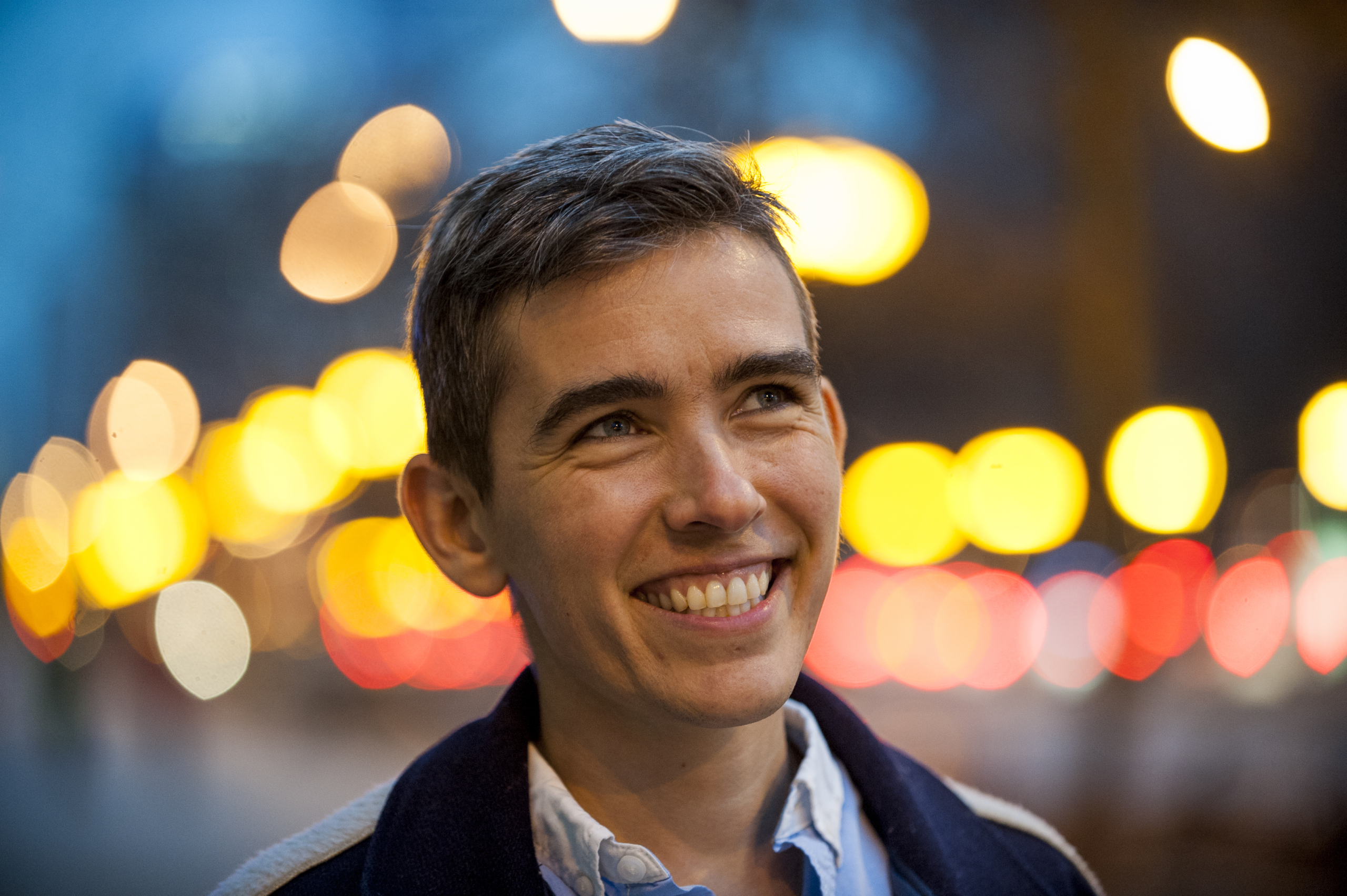Sign up for The Media Today, CJR’s daily newsletter.
The American journalism community fancies itself a completely neutral estate, the poster child for objectivity. But this conceit is, at best, ahistorical. Like all things, the modern press corps was born into an inequitable society, and its strictures show up in the industry everywhere from hiring practices to how certain communities are covered, if they get coverage at all.
Debate about whether complete objectivity is possible while reporting inspires heated debate. A new podcast, The View From Somewhere, aims to push this important ethical conversation again to the forefront, this time with a deep look into the archives. Hosted by reporter Lewis Raven Wallace, 34, whose book of the same name is slated for release late this year, the podcast will dig into the history of objectivity in a journalistic context, featuring stories about reporters whose work has poked holes in the myth of its infallibility.
“Part of [the goal of] this book and this podcast is to tell a whole different story about what journalism has been and what it could be,” says Wallace.
Related: There are times journalists should become the story
In early 2017, Wallace, then a reporter at American Public Media’s Marketplace, published a piece on his personal blog in which he considered the role of an “objective” press as the country transitioned into a new presidential administration, one that had brought with it transphobia, racism, and regular attacks on the press.
“Some argue that if we abandon our stance of journalistic neutrality, we let the ‘post-fact’ camp win,” he wrote. “I argue that our minds — and our listeners’ and readers minds — are stronger than that, strong enough to hold that we can both come from a particular perspective, and still tell the truth.”
Wallace was fired when he refused to take down the post, and has spent the months since immersed in research about truth-telling journalists whose strength was their refusal to cling to supposed neutrality, the old defender of the status quo.
“A lot of great journalism in the United States and all over the world has been journalism that stood for something,” says Wallace. “Standing up to power requires standing for something. Standing for nothing at all in the Jim Crow era is like, well, we accept segregation.”
For reporters from underrepresented communities—reporters of color, queer and transgender reporters, disabled reporters, poor reporters—taking a neutral stance on their own humanity isn’t an option.
Wallace notes the long history of the black press—coined “a fighting press”—for its track record of pursuing stories that challenge white racism, reporting on issues and people that have been traditionally ignored by other news outlets, and for openly advocating for the acquirement of human and civil rights for black people in America. Newspapers by and for other marginalized communities have done similar work.
“You had LGBT papers doing the preeminent investigative coverage and human interest coverage of AIDS for years and years before mainstream papers covered it,” adds Wallace. “And those are papers that have been written out of official journalistic history as niche, or as advocacy journalism.”
The podcast, which will be produced by Ramona Martinez alongside Wallace, will feature a range of episodes about how seminal eras of American history, such as lynching and the spread of AIDS, were reported. It will also tackle contemporary issues, including the Black Lives Matter movement, coverage of transgender people, the #MeToo movement, and coverage of both overt and what Wallace calls “status quo” white supremacy.
Growing distrust in journalistic institutions has led news organizations to take steps to reassert their worth. Outlets have tried everything from community town halls featuring reporters to $10 million Super Bowl ads. But this doubling down might reveal the industry’s blind spots.
“I was really stricken while working in public media by the extent to which the conversation was about how to appear objective rather than about how to be as fair or as impartial as you could in your reporting,” says Wallace. “And those are obviously really different things, right? Appearing objective kind of inherently has to do with how do people react to the story that you tell.”
Wallace adds: “Some people might not see it as fair or objective if in the morning you said Trump lied and at noon you said Trump lied and at 6:00pm you reported again that Trump lied. But if Trump lied in the morning and at noon and at 6PM, and you were reporting the facts, then it doesn’t really matter if somebody perceives that as unobjective.”
Wallace says it will cost about $40,000 to produce a single season of the podcast. As of Sunday evening, the pair had raised $9,864 from 237 supporters.
As concerns about the media industry’s shameful, perpetual lack of diversity continue to percolate, it stands to help contextualize why, for reporters from underrepresented communities—reporters of color, queer and transgender reporters, disabled reporters, poor reporters—taking a neutral stance on their own humanity isn’t an option.
“Undoing the myth of journalistic objectivity, that’s one goal,” says Wallace. “The other goal is helping to create a new canon of diverse journalists who did or are doing work that changed the world, and making space for those voices to be seen as a part of the story of journalism.”
ICYMI: I was plagiarized by Jill Abramson
Has America ever needed a media defender more than now? Help us by joining CJR today.



